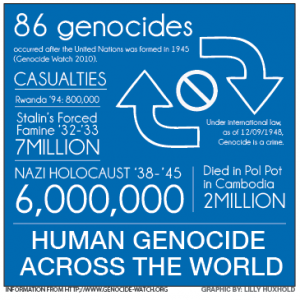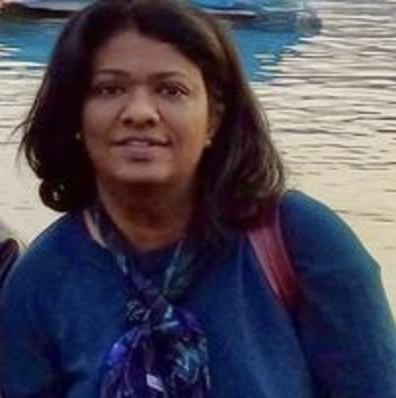Genocide, an ongoing problem
Kimberly Morice
-Sr. Staff Writer-
 After the Holocaust in 1948, there have been more than 80 genocides, according to Cindy Epperson, Ph.D., Meramec sociology professor. Epperson has had the opportunity to travel to Cambodia and other various countries that have been the victims of genocide. She said students should be aware of the effects of genocide worldwide.
After the Holocaust in 1948, there have been more than 80 genocides, according to Cindy Epperson, Ph.D., Meramec sociology professor. Epperson has had the opportunity to travel to Cambodia and other various countries that have been the victims of genocide. She said students should be aware of the effects of genocide worldwide.
“I’m always amazed at how monstrous human beings can be. For years I’ve thought that we need to talk about genocide on this campus,” Epperson said..
During the month of April, STLCC-Meramec will host its first annual Genocide Awareness month. Eleven videos on genocide will be shown throughout the campus on televisions during the month of April, as well as guest speakers and awareness events.
According to Epperson, coordinator of Meramec’s Genocide Awareness month, genocide, defined as an international crime against humanity, occurs because of people’s race, ethnicity, nationality or religion.
“It’s really interesting if you talk to people who have committed a genocide, who were perpetrators say in Rwanda in 1994 or Cambodia from 1975 to 1979; when they talk about it they say it was just one of those things. I’ve heard that over and over again,” Epperson said.
As part of Genocide Awareness Month at Meramec, students in Epperson’s Universal Human Rights course and Tim Linder’s Photo Imaging course will design posters on various facets of genocide.
“What my students did in the human rights course, is they looked at 13 different areas of genocide; what is genocide, what is the law, what are the causes of genocide, how can you deny a genocide and who denies genocide,” Epperson said.
Margaret Keller’s art students will also create paintings depicting genocide displayed on the second floor of the Humanities East building. Library staff have also created a display and genocide guide available for viewing.
“I would encourage students to learn five or six different facts about genocide, about a topic that is uncomfortable, but very important to all of us,” Epperson said.
Epperson said she stresses the importance of genocide, and the fact that it can happen anywhere at anytime.
“One of the points I try to make to the students is that anyone, including my own self, could be engaged in a genocide; we could be the victims or we could be the perpetrators. We all have that potential, I believe, for moral evil in us,” Epperson said.










